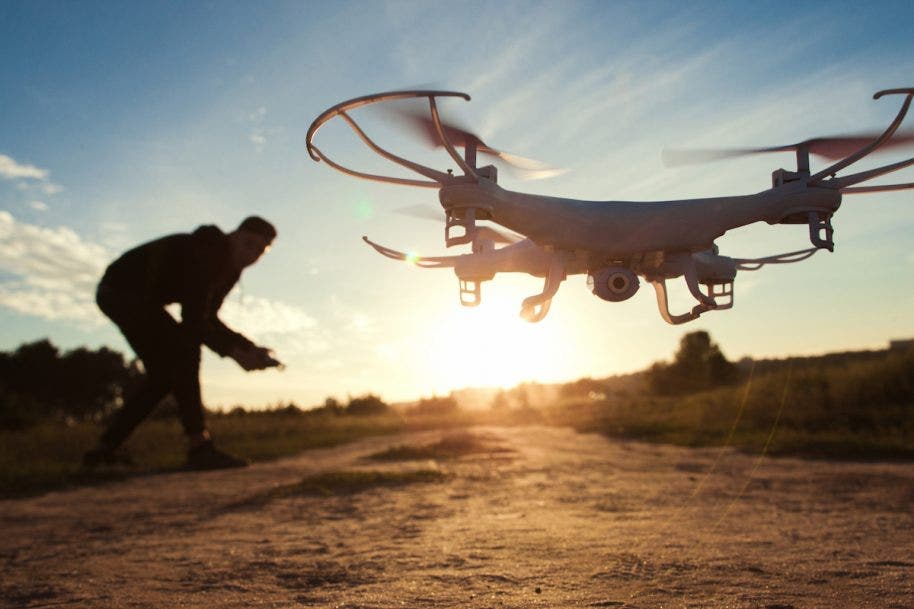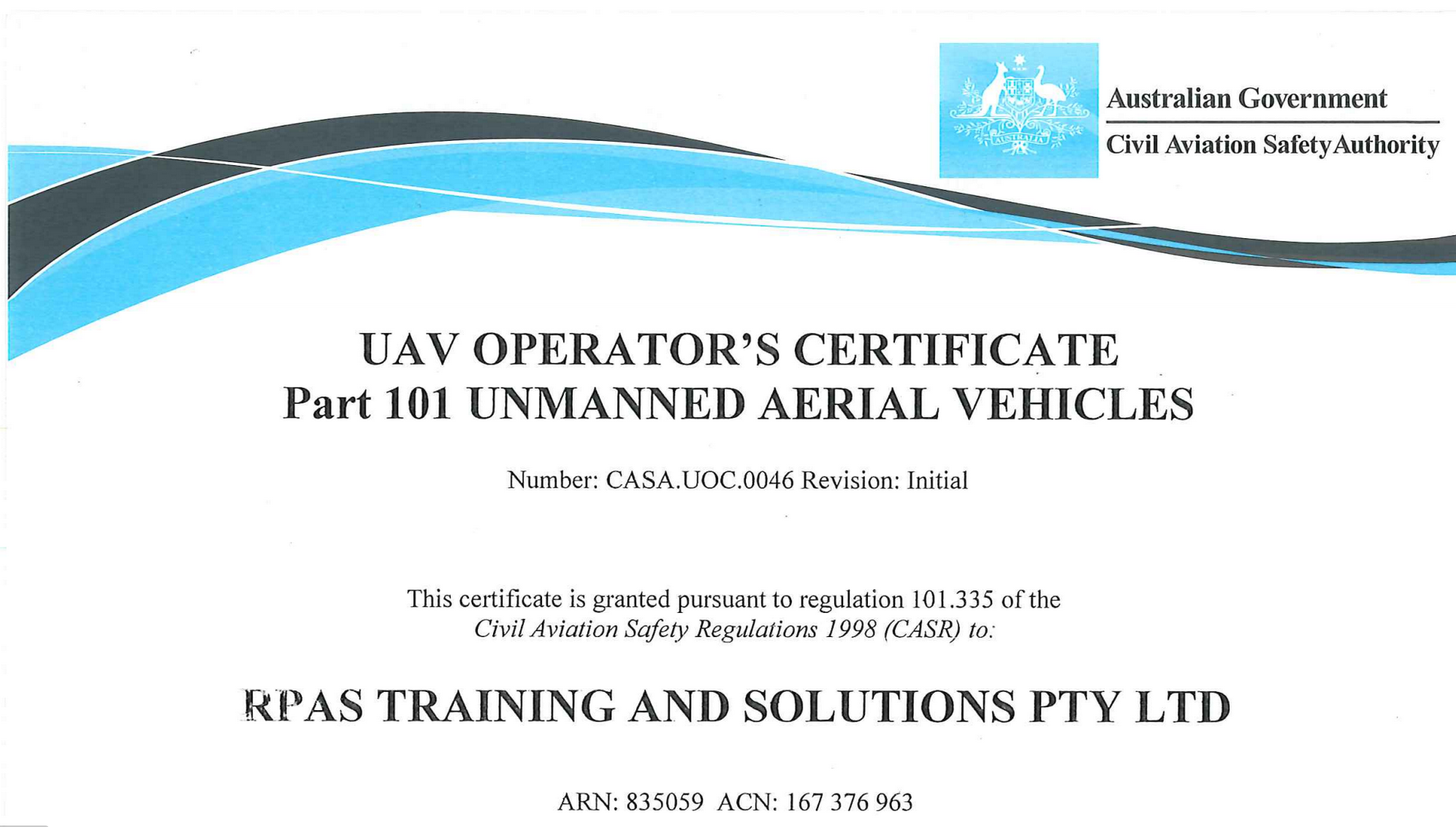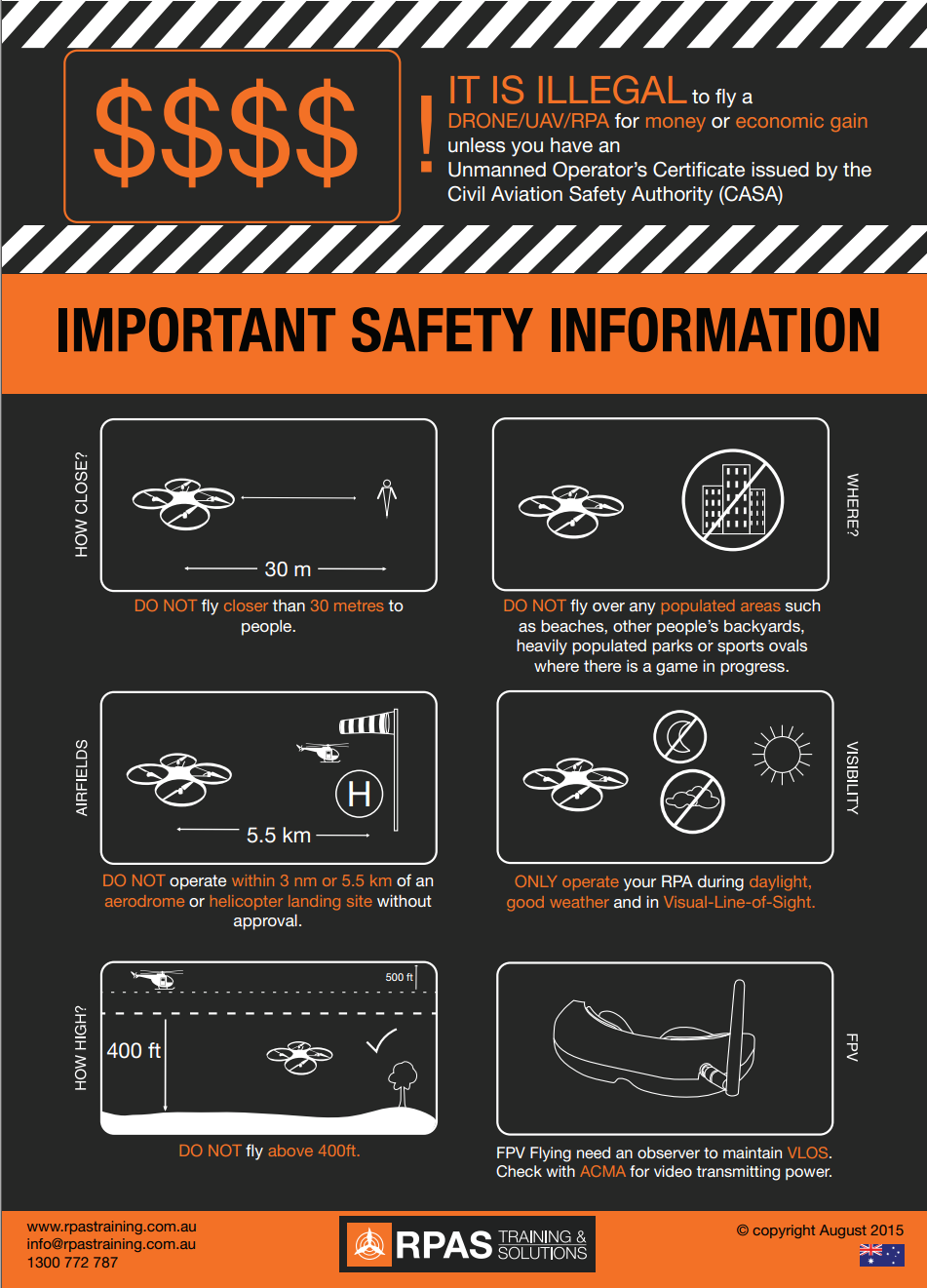
As the popularity of drones continues to grow, so does the need for regulations and rules to ensure safe and responsible drone operation. Understanding drone flying rules is crucial for all drone pilots, whether you're a hobbyist or using drones for commercial purposes.
Registering Your Drone in Australia
In Australia, it is mandatory to register your drone with the Civil Aviation Safety Authority (CASA) if it weighs more than 250 grams, including any attachments such as cameras or sensors. Failure to do so can result in penalties and fines.
It is illegal to fly a drone/UAV (Unmanned Aerial Vehicle)/RPA (Remotely Piloted Aircraft) for money or commercial gain unless you have an Unmanned Operator's Certificate issued by the Civil Aviation Safety Authority (CASA). Commercial gain can include anything from advertising to simply uploading a video to YouTube. There are currently 257 certified UAV operators in Australia.
Once you've registered your drone with CASA, you'll receive a unique registration number which must be displayed on your drone. This registration number helps authorities to identify your drone and its owner in case of incidents or accidents involving drones.

Understanding Airspace Regulations
Now that we are clear on the difference between recreational and commercial use, lets have a look at the regulations for anyone flying a UAV in Australia:
- Operating conditions: Drones must not be flown higher than 120 meters above ground level, or within 30 meters of people, buildings, or other structures. They must also not be flown at night, or in a way that could endanger other people or property.
- Line of sight: Pilots must keep their drone within visual line of sight at all times, unless they have an approved remote pilot licence or other exemption from CASA.
- No-fly zones: Drones must not be flown in restricted airspace, including areas around airports, military bases, or other sensitive locations.
- Privacy: Drone pilots must respect other people's privacy when flying their drones, including not recording or photographing people without their consent.

Legal Consequences for Rule Breakers
In Australia, breaking drone flying rules can result in significant legal consequences. The Civil Aviation Safety Authority (CASA) is responsible for enforcing drone flying regulations, and they can issue fines and penalties for breaches of the rules.
Depending on the severity of the offence, fines can range from several hundred to several thousand dollars, and in some cases, drones may be confiscated. Repeat offenders or those who commit serious offences may face criminal charges, which can carry even more severe consequences.
It's important to note that the legal consequences of breaking drone flying rules aren't limited to fines and penalties. If your drone causes damage or injury to other people or property, you may also be liable for civil damages. This can be particularly costly if your drone causes damage to a commercial property or infrastructure.
Tips for Responsible Drone Flying
Here are some tips for responsible drone flying that can help ensure the safety of others and promote a positive image of drone technology:
- Follow regulations: Familiarise yourself with local drone flying rules and regulations, and ensure that you comply with them.
- Respect privacy: Always respect other people's privacy and avoid flying your drone over private property without permission.
- Maintain line of sight: Keep your drone within visual line of sight at all times, unless you have an approved remote pilot licence or other exemption from authorities.
- Avoid crowded areas: Don't fly your drone over crowded areas such as events or public gatherings, as this can pose a safety risk.
- Be considerate: Be considerate of other people and avoid flying your drone in a way that could disturb or annoy them.
- Take care of your drone: Regularly inspect your drone to ensure that it is in good working condition, and follow manufacturer instructions for maintenance and repairs.
As technology advances, drones are becoming more affordable and accessible, which means more people are using them for both recreational and commercial purposes. In the future, it's likely that drone regulations will become even more strict as the number of drones in the sky continues to increase.
